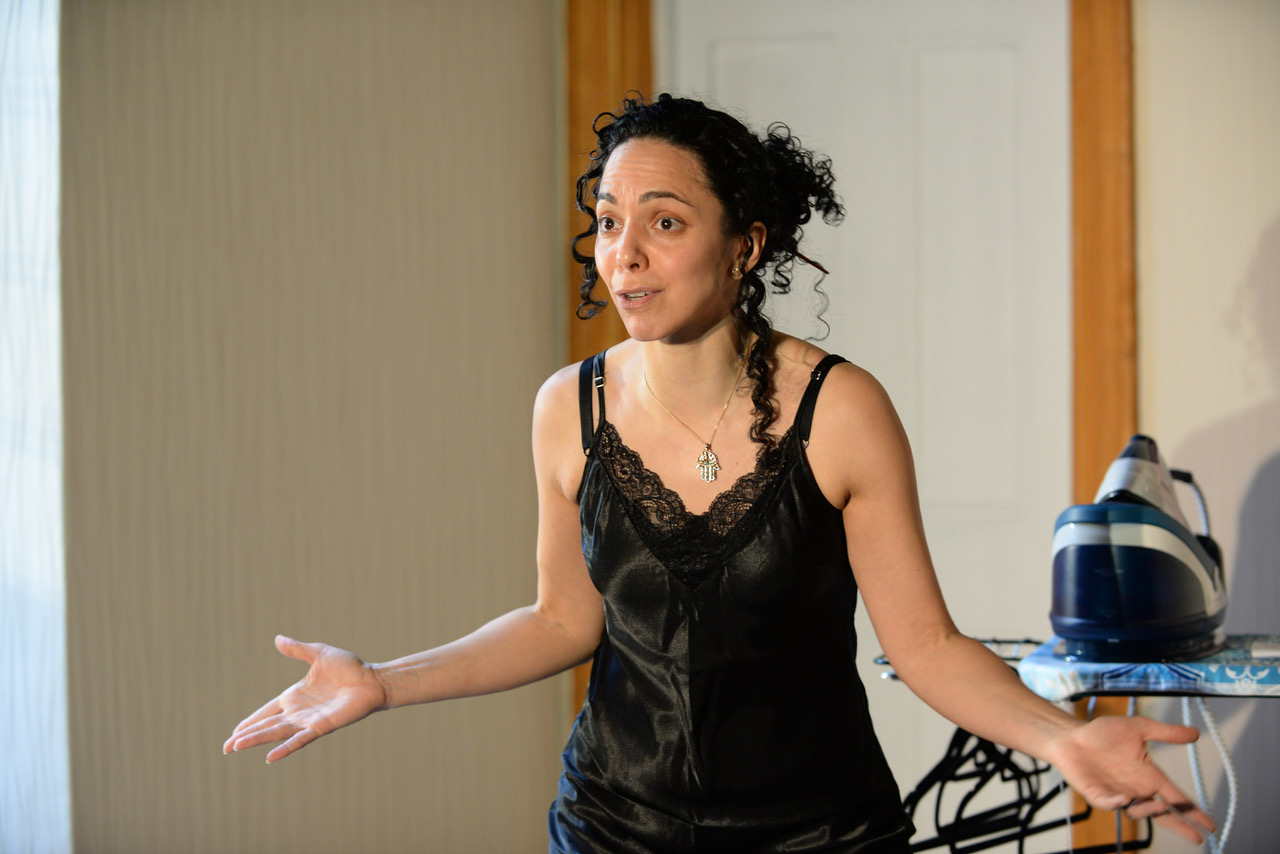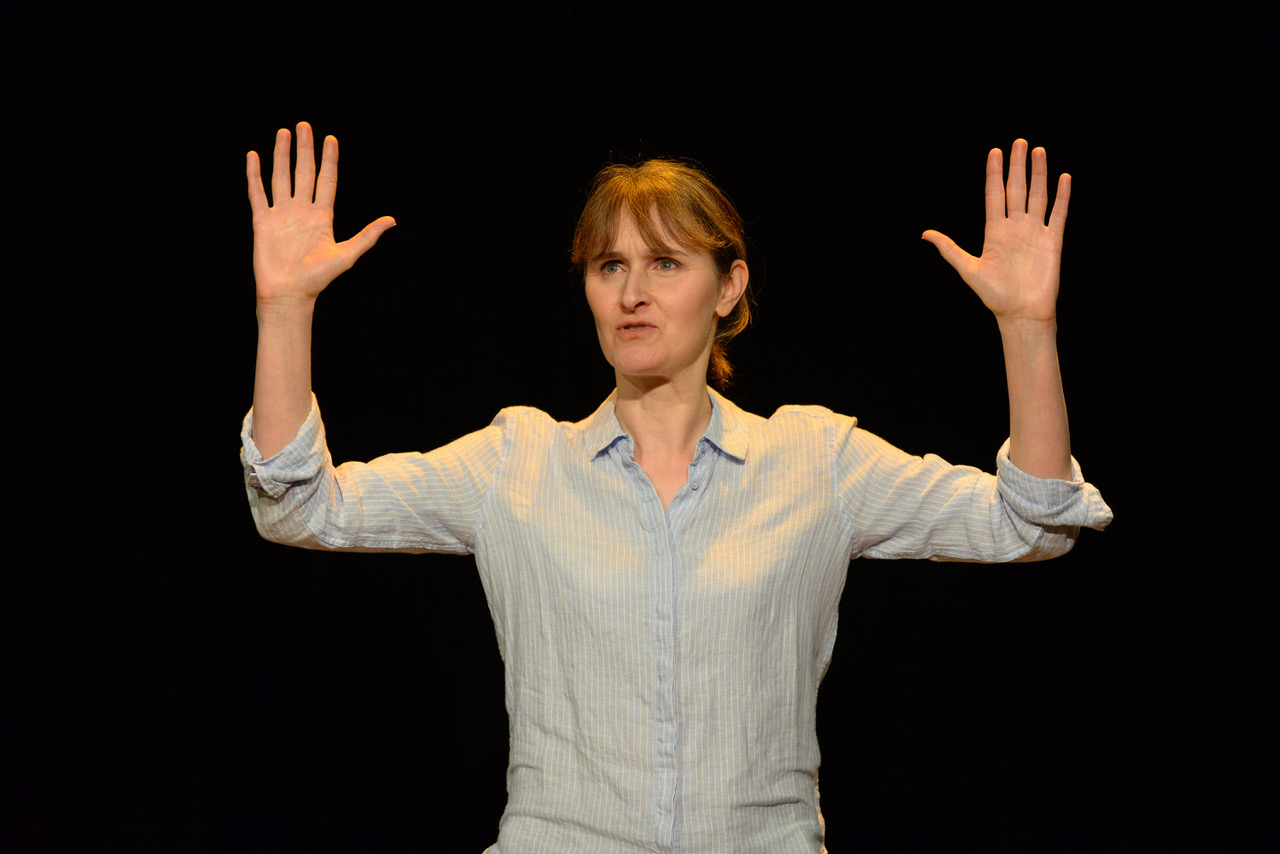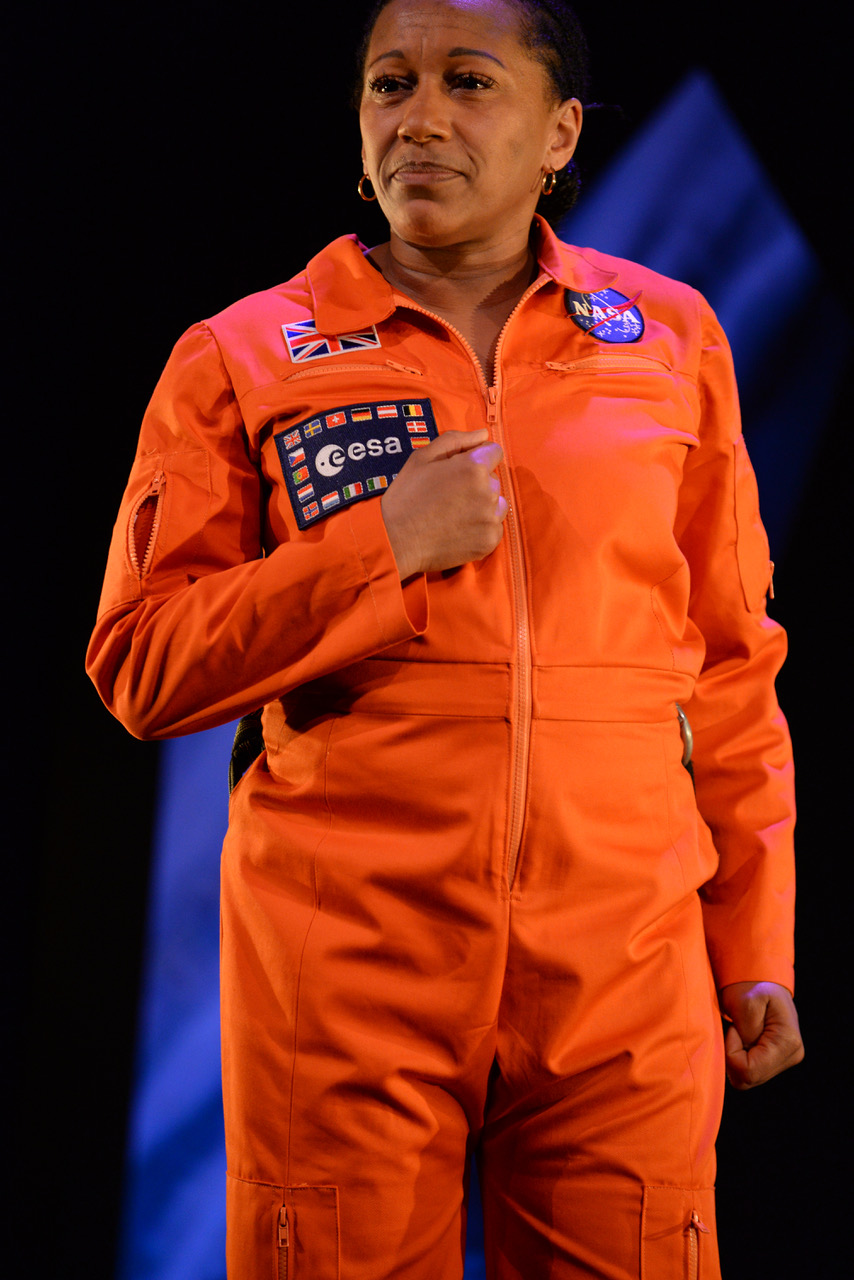This is an evening of three short one-woman plays, each highlighting different aspects of the female experience in contemporary society.
Each piece – curated and directed by Hoxton Hall’s artistic director Karena Johnson (read interview), is separated by 15-minute intervals, and delivered in different spaces within the building. While this tended to diffuse the energy somewhat, it also allowed the audience an opportunity to ‘re-set’.
It also creates a sense of there being a treasure hunt (always a good thing).
“A woman alone”
The piece, written beautifully by Oneness Sankara, uses Trinidadian dialects, and spoken-word poetry to great effect
This first piece of the evening, written by Italian theatre giants Franca Rame and Dario Fo, is about a Turkish London housewife (Gehane Strehler) locked in her own home by her husband. Described as a ‘tragic farce’, it is – by turns – funny, moving, harrowing and absurd.
The middle-aged woman – speaking to her neighbour through a window – recounts various tales of sexual abuse, domestic violence, mental cruelty, peeping toms, extra-marital affairs, and suicide attempts. Initially, her stories – and Miss Strehler’s energetic performance – draw the audience into her plight. However, as each new development descends upon her with ever-increasing rapidity, the emotional intention becomes muddy. The script is intended as a ‘farce’ – a heightened exploration of dramatic events. However, as the ‘hits keep coming’ – and the narrative shifts sharply from one thing to another – there seems increasingly less room for the audience’s emotional investment, thereby diminishing the impact somewhat. The busyness of the set – the flat being fully furnished – seemed to reinforce the frenetic aspect of the narrative, and the delivery.
A little more space might have been a better option.
And so, we move to ‘another space’…
“A mother”
This piece, again by husband and wife team Rame and Fo, has more of this. Set sparsely, it tells the story of a mother coming to terms with her son being arrested and charged as a terrorist. Although clearly based on the couple’s experience of post-war Italy, it is a timely narrative. In this monologue, the mother (Rebecca Sire) expresses the very specific grief of knowing that – however much she loves her son – he has damned them both with his actions. We often hear about the pride a parent feels when hearing, or delivering, positive news about their offspring’s endeavours. What we see here is how a mother copes with feelings of guilt, shame, and regret when the converse occurs. Within the monologue, we hear how those who visit convicted terrorists in prison are treated as ‘worse than criminals’ themselves. This leads one visiting mother to express the view that – had she known how her son would have turned out – she would have had an abortion!
The piece also reminds us that the difference between a ‘terrorist’ and a ‘freedom fighter largely hinges on just how ‘righteous’ (i.e. profitable) contemporary Western societies view a specific political or religious cause. This brings up the question as to whether a human being can be – or should be – ‘evaluated’, based only upon their most, or least, admirable action (or indeed the actions of those closest to them). Also, by doing this, does society diminish itself?
We are reminded that any apologists for those deemed by ‘the zeitgeist’ to be societal pariahs, are to be castigated and / or ostracised; none more so than their loved ones. And who loves more than a mother? In the end, the woman’s only escape from the nightmare – the only way to keep alive her maternal bond – is to dream of her son as an innocent boy; thereby killing the man he has now become. Powerful stuff.
“The immigrant”
The last piece of the evening takes us to yet another space – literally. In it, we see Trinidad and Tobago astronaut, ‘Amanda Baptiste’ (Claire Perkins), as she orbits the earth while recording a video-link Q&A for a Trinidadian school. We get to hear how, having settled for a relationship with a man ‘beneath her’ – at least in respect of her intellect, academia, and aspirations – she falls pregnant and has a baby. However, being an ambitious woman, she applies for – and gets onto – a trainee astronauts programme which means being away from her child for nine years.
It is an intriguing set-up, especially as each question posed by the school-kids is a set-up for both more revelations as to how she got (up) there, and – just as importantly – how the decisions she has made have impacted upon her fraught relationship with her daughter, ‘Shola’. Ultimately, she refuses to be enslaved by the conventions of patriarchy in its many forms: her ex-partner’s refusal to countenance her power, her mother’s refusal to believe in the moral rectitude of her wielding it at the expense of the traditional family structure, and her own daughter’s ultimate revenge / repudiation of her.
Karena Johnson has crafted a stimulating evening of ‘woman’s work’
The piece, written beautifully by Oneness Sankara, uses Trinidadian dialects, and spoken-word poetry to great effect, while Miss Perkins’ poise and emotional power add weight to her delivery – even as she is suspended ‘weightlessly’ above both stage and audience by the rope attached to her. This piece doesn’t ask whether women can ‘have it all’, or not; it simply points out just some of the indignities humiliations, and abuses women receive when they attempt to utilise a portion of the options open to men as a matter of course. The backdrop of earth (here seen from Space) is a tantalizing glimpse of the ‘world of possibilities’ always tantalisingly out of most female’s reach. Although sometimes a little ‘stop-start’, the performance and the writing make for a thought provoking and, ultimately, emotionally uplifting experience.
It is certainly important to remember that no amount of #METOO campaigning can effect change, without access to the stories – the emotional truth – to back it up.
To this end, Karena Johnson has crafted a stimulating evening of ‘woman’s work’.
Bravo.



























